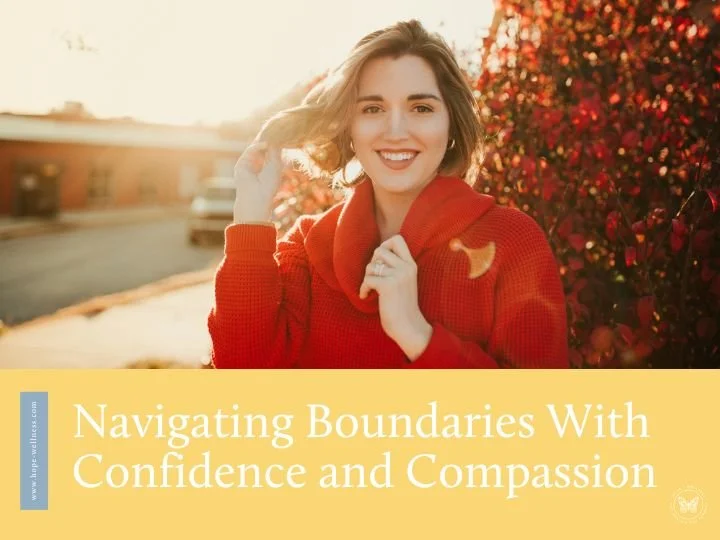
Hope +Wellness Blog
little snippets of advice for everyday challenges many people share

Boundaries 101: Navigating Boundaries With Confidence and Compassion
Setting boundaries takes practice and compassion, but it’s possible to feel more confident in your ability to communicate your limits.

Making Friends as an Adult: A Guide for 2025
If you’re longing for closer friendships or struggling with making friends, you’re not alone. Here’s how to approach it.

Navigating Relationship Shifts on Your Healing Journey
Navigating the relationship changes that accompany your healing journey with compassion—for yourself and for others—is essential.

4 Ways to Cope with Being Disliked
Whether we like it or not, it’s impossible to be liked by everyone. People are too different for everyone to get along all the time, so at some point we are all going to have to deal with being disliked.

What Forgiveness Is and Isn’t
When you’re upset, it’s tempting to ruminate on the negative feelings like anger, betrayal, confusion, and sadness. Some people find that the process of forgiveness can help relieve those negative feelings and allow you to focus on more positive things.

4 Tips for Dealing With a Friend Breakup
If you’re struggling with a friendship breakup, know that you’re not alone. So many people have been through this kind of pain, and whatever reaction you’re having is valid. Here are some of our top tips for dealing with a friend breakup.

5 Reasons You Might Consider Ending a Friendship
Whatever way works for you and your situation, know that it is okay to feel a bunch of conflicting feelings about ending a friendship. You might feel relieved to not have to deal with them anymore. You might feel sad remembering the good times you had together. You might be angry at the way they treated you. Whatever you’re feeling, it’s okay.
Hope+Wellness is a mental health practice specializing in the treatment of depression, mood, stress, and anxiety in kids, teens, and adults. This is a blog about living well and finding meaning and purpose in the face of difficult challenges. This is a blog about finding hope.
Archive
- ACT
- ADHD
- Acceptance
- Anxiety
- Authenticity
- Belonging
- Bipolar
- CBT
- Calming
- Change
- Chronic Illness
- Chronic Pain
- Communication
- Community
- Coping Skills
- DBT
- Dating
- Depression
- EMDR
- Emotions
- Entrepreneurs
- Friendship
- Gratitude
- Grief
- Health Psychology
- Hope
- Inspiration
- Intimacy
- Intuition
- Joy
- Letting Go
- Love
- Manic Depression
- Mindfulness
- Miscarriage
- OCD
- Parenting
- Personal Growth
- Positive Vibes
- Quotes
- Relationships
- Resources
- Self-Compassion
- Self-Reflection
- Services
- Sleep
- Spirituality
- Stress Management
- Stress Relief
- Suffering